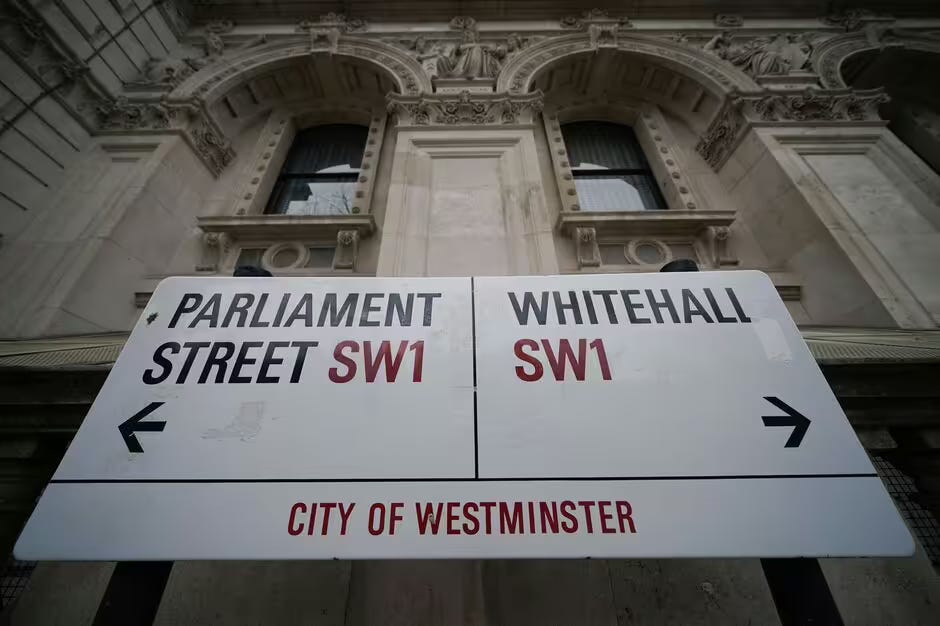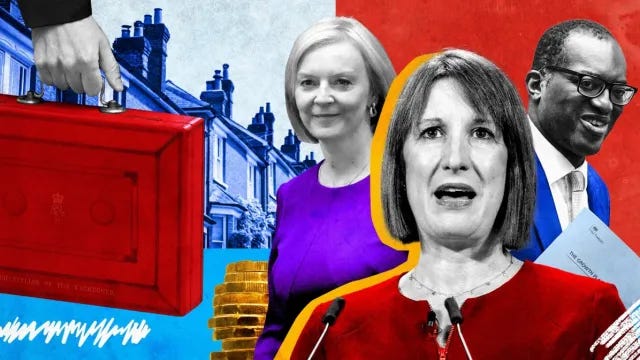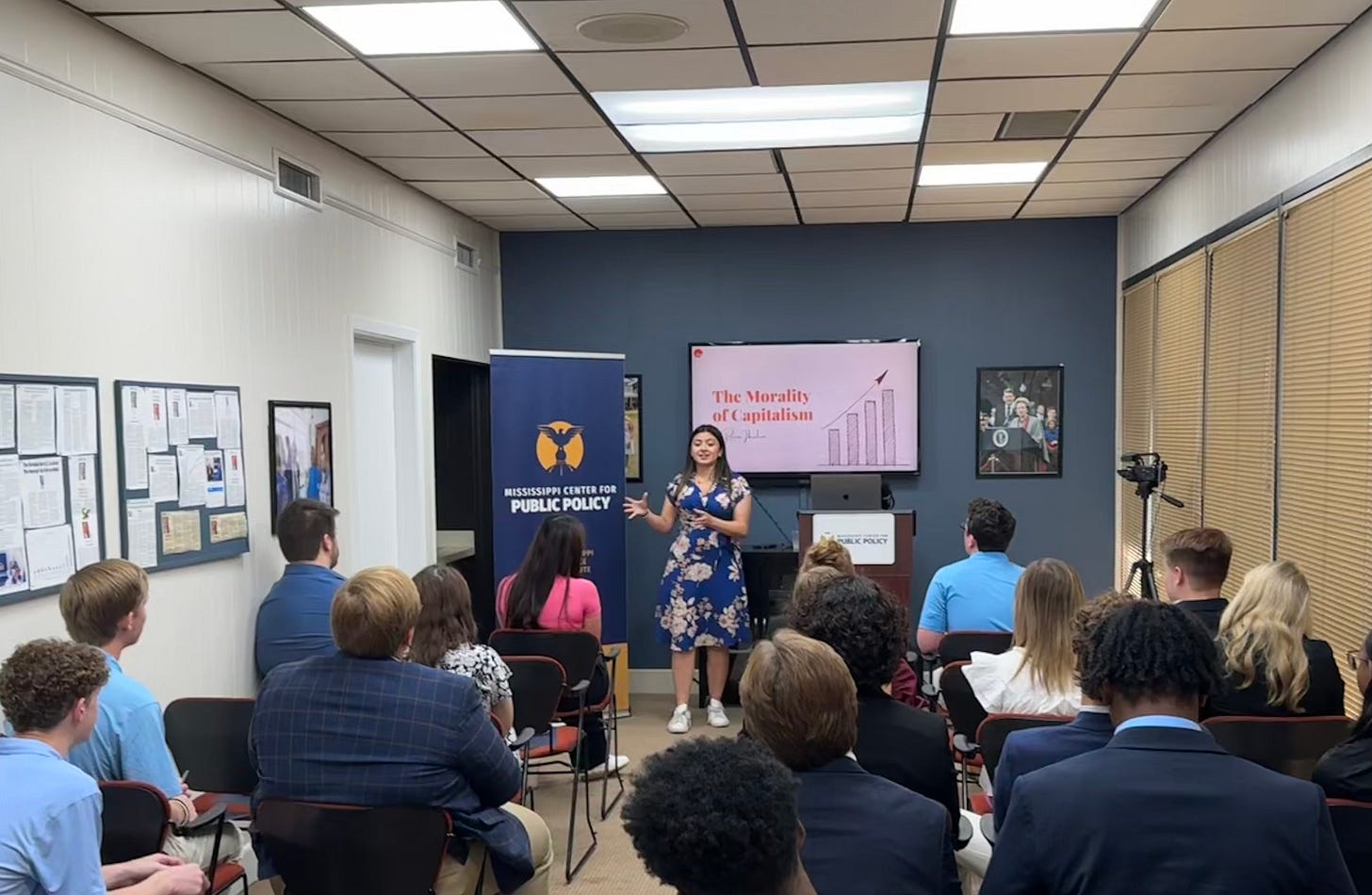Tax Hikes and Thought Crimes
And what can we expect in the autumn budget?
Recent headlines have given us the strongest indication yet that Rachel Reeves is gearing up to expand inheritance tax to help plug the ‘black hole’ in government spending.
There is much to dislike about the current system of taxing inheritances. The headline rate of 40% applied to wealth transfers on, or near to death, above a threshold of £325,000 seems steep. Yet, as proponents point out, fewer than 1 in 20 estates pay the tax. This is largely due to allowances for residential property and passing on unused thresholds to a partner, resulting in an effective threshold of £1 million for many married couples. While these allowances may seem generous, those families just above the threshold often bear the tax burden, as they cannot relocate abroad or employ sophisticated tax planners like the richest percentiles of the population.
Moreover, the current system creates significant distortions in how wealth is invested. Carve-outs for pension pots and shares in Alternative Investment Market firms, along with reliefs for business assets and agricultural property, exemplify this. Whilst the Chancellor is likely to target these exemptions for the primary purpose of revenue generation, there are sound economic reasons to reconsider them. Antithetical to the principle of tax neutrality, such carve-outs induce people to shelter their wealth in specific assets that may be less productive than other economic opportunities.
That said, focusing solely on tweaks to increase revenue, or reduce distortions, overlooks the fundamental issues with taxing inheritances. Rather than affecting often bedevilled top 1%, the tax burden primarily falls on middle-class families in South East England whose homes have appreciated courtesy of the housing crisis and loose monetary policy. Fundamentally, even if the Chancellor were to reduce the number of economically distortive carve-outs in place, this would not change the fact that inheritance tax is still ultimately a tax on capital accumulation. Taxes on savings and investment are just plain bad, incentivising immediate consumption over capital accumulation. This is no good for economic growth.
If the government’s foremost mission is actually growth, then the rational approach would be to eliminate the tax entirely, joining the handful of other OECD countries that do not levy death duties. Moreover, the revenue lost would be modest – costing less than the cost of the Chancellor’s announced public sector pay rises. Yet, all the recent coverage suggests our ‘mission-driven’ government is unwilling to think beyond the short-term.
Matthew Prescod
IEA Programmes Manager
P.S. The best way to support our vital research and educational programmes is to become a paid IEA Insider. For a limited time, new paid subscribers will receive a copy of Steve Davies’ new book Apocalypse Next: The Economics of Global Catastrophic Risks and a 15% discount.
Incoming Tax Hikes, Thought Crime in Britain & the Next Generation of Liberals | IEA Podcast, Executive Director Tom Clougherty, Editorial Director Kristian Niemietz, and International Programmes Manager Harrison Griffiths, IEA YouTube
Bank of England should step up the pace of rate cuts
Commenting on data showing that the rate of inflation fell below the 2% target for the first time in three-and-a-half years – to 1.7% in September – Julian Jessop, Economics Fellow at the IEA, said:
"Today’s better than expected inflation data add to the growing evidence that UK interest rates are far higher than they need to be. The cooling in the labour market should also ease fears about services inflation.
"Admittedly, the September numbers were flattered by swings in transport costs. The rise in domestic energy bills also still means that inflation will jump above the 2% target again in October.
"Nonetheless, inflation is set to be lower than the Bank of England had been forecasting. The gradual pass through of previous interest rate rises and the rapid slowdown in the growth of the money supply mean that the risks will remain on the downside.
"The Bank should therefore reduce rates by at least a quarter point at the November MPC meeting. Indeed, a large package of tax rises in the October Budget could tip the balance towards a half point cut."
Tax rises could push Bank of England towards larger rate cut, IEA Economics Fellow, The Telegraph, The Scotsman, The Yorkshire Times, and Benefits Expert
News, Views & Upcoming Events
The Thatcher Legacy, Charles Moore in conversation with IEA Executive Director Tom Clougherty, IEA YouTube
The Hidden Truth Behind Inflation, Damian Pudner, IEA YouTube
How Poland and Vietnam Escaped Poverty, IEA Editorial Director Dr Kristian Niemietz, CityAM
Londoners to get extra six days off work a year if Labour bows to unions, IEA Editorial and Research Fellow Professor Len Shackleton quoted in the Telegraph
Professor Len Shackleton, of the Institute of Economic Affairs, said: “Regulations like this are very difficult to object to. ‘Isn’t it awful making people work in extremes of temperature?’ Yes, it is.
“But when you’re a small business – for example making sandwiches for deliveries – once you’ve lost a day you’ve lost money.
“For businesses in that position which produce something, there will be a measurable loss. In other areas there will be delays, which will be a cost to the consumer as much as anyone else.”
A rise in childhood obesity?, IEA Head of Lifestyle Economics Dr Christopher Snowdon, BBC Radio 4
Ozempic has exposed the grift behind the public-health lobby, IEA Head of Lifestyle Economics Dr Christopher Snowdon, Spiked
British industry has forgotten how to use its voice, IEA Head of Lifestyle Economics Dr Christopher Snowdon was quoted in the Critic
‘Freedom from big bureaucracy?,’ for ‘Generation AI?’, IEA Education Fellow Steve Davies, Bright Blue
Civil servants' wage bill soars as staff numbers rocket, IEA Editorial and Research Fellow Len Shackleton quoted in the Express.
Professor Len Shackleton of the Institute of Economic Affairs, claimed that “productivity and performance has clearly fallen in many areas” despite the escalation in staff numbers.
Calling for a “strategic re-engineering of the public sector,” he recommended that Government departments including Culture, Media and Sport are scrapped.
‘Markets have wobbled already’: How the Budget could hit mortgages, IEA Executive Director Tom Clougherty was quoted in the i.
Last week, IEA Acting Director of Communications Reem Ibrahim spoke to the Missisippi Center for Public Policy’s Leadership Academy, alongside President and CEO Douglas Carswell.












There is no doubt that the tax system is a mess, with loopholes galore for those with the right knowledge or advice. a wholesale removal of ALL tax breaks and a flat rate of tax on all income from all sources with no breaks for Trusts or other tax avoidance dodges then a universal income for all citizens, a minimum amount just enough to avoid the need for food banks. would produce more income than the present set up and if all savings, by means of a SIPP or similar were then regarded as deferred income the tax would be deferred. On redemption then all cash coming from these 'SIPPS' would be taxed as income. Eliminating the need for capital gains tax. Immigrants should be allowed to find work, but get no universal income until they can show that they have paid adequate ta already to acquire official residence in the UK. I am convinced that a rigorous application of the above would transform the UK economy.